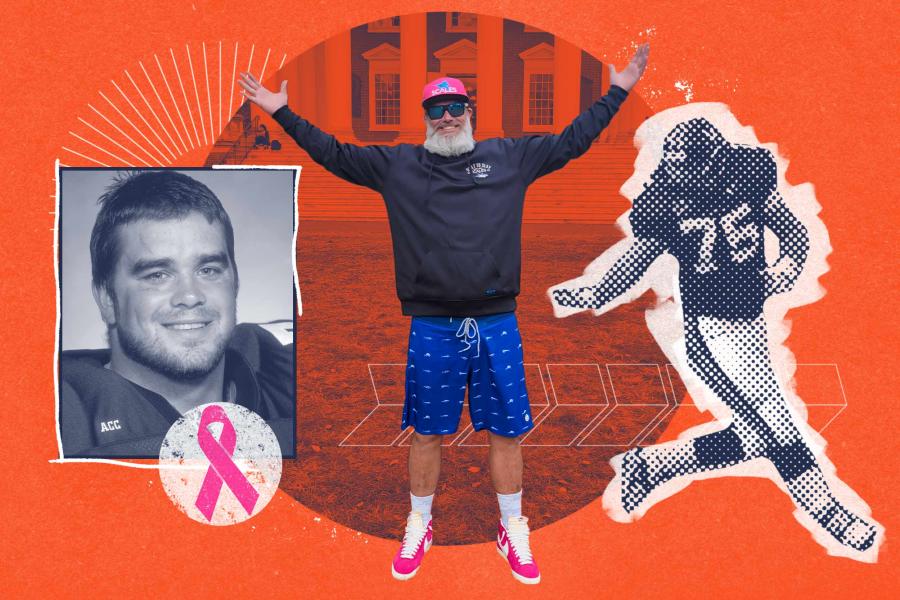The University of Virginia released the results of a comprehensive survey measuring student experiences, awareness and perceptions of sexual misconduct and assault on Grounds.
The University was one of 10 higher education institutions to voluntarily participate in the Higher Education Sexual Misconduct and Awareness survey. Social science firm Westat administered the survey, which was based on a former Association of American Universities Campus Climate Survey on Sexual Assault and Sexual Misconduct, which was last conducted at UVA in 2019.
Anonymous survey results give the University insight into students’ experiences on Grounds and their awareness of reporting and support resources. The survey also helps inform the University about student awareness of existing resources, response and support, and guides the University’s ongoing efforts to reduce and prevent sexual assault and misconduct.
“The recent survey participation and results are encouraging and serve as a reminder that our efforts to raise awareness and prevent sexual misconduct matter,” Kenyon Bonner, vice president and chief student affairs officer, said. “But so long as any of our students are impacted by this behavior, we know there is more work to be done. Our goal is to eradicate sexual misconduct at UVA completely to provide the safest and healthiest environment possible for all.”
The survey was distributed to a representative, random sample of 6,000 UVA undergraduate, graduate and professional students between April 2 and May 15, 2024, with 1,836 students participating. UVA’s response rate was 30.6%, consistent with the 30.4% response rate in 2019.
UVA’s full report can be found on the Office for Equal Opportunity and Civil Rights website. Westat also released the aggregate report of the 2024 survey results.
Among the many questions in the survey, students were asked about their perceptions related to sexual misconduct, and whether they have experienced various forms of sexual misconduct such as sexual assault, sexual harassment, stalking and intimate partner violence. Compared to the 2019 survey, fewer male and female undergraduate and graduate students reported experiencing sexual harassment. Of graduate women who responded to the survey, 13.7% reported experiencing sexual harassment, compared to 26% of undergraduate women, 8.8% of undergraduate men, and 4.8% of graduate men. In 2019, 22.8% of graduate women, 29% of undergraduate women, 11.1% of undergraduate men, and 5.6% of graduate men respondents reported these experiences.
Of UVA survey respondents in 2024, 25.1% of undergraduate and 29.3% of graduate nonbinary, transgender or gender self-identified students reported a sexual harassment experience, compared to 47.1% of undergraduates and 32.6% of graduates in the full 10-college consortium for 2024.
Participating students were also asked how problematic they believe sexual assault or other sexual misconduct is at UVA. Around 53% indicated it is at least somewhat of a problem, down from 67% in 2019.
Other key results from the 2024 survey of UVA students include:
- Fewer students in nearly every category reported experiencing sexual assault by physical force, threats of physical force or incapacitation since starting at UVA, compared to the 2019 survey. Of undergraduate women, 19.7% reported an experience, compared to 5% of graduate women, 6.5% of undergraduate men, 2.3% of graduate men, 13.3% of undergraduate nonbinary, transgender or gender self-identified students, and 15.8% of graduate nonbinary, transgender or gender self-identified students. In 2019, 25.5% of undergraduate women, 10% of graduate women, 7.9% of undergraduate men, and 1.9% of graduate men reported experiencing sexual assault.
- In the 2023-24 academic year alone, fewer first-year undergraduate women, 11.2%, reported experiencing sexual assault. In the survey results for only the 2018-19 academic year, 19.1% of first-year undergraduate women reported an experience.
- Reports of intimate partner violence are consistent with 2019 survey results among UVA respondents. In the 2019 survey, 9.3% of undergraduate women, 8.2% of undergraduate men, 7.9% of graduate women, and 4.6% of graduate men reported experiencing violence from an intimate partner. In 2024, 8.8% of undergraduate women, 7% of undergraduate men, 6.1% of graduate women and 5.1% of graduate men reported cases of violence.
Most of the UVA survey respondents, 67%, reported they were at least somewhat aware of how sexual assault and other sexual misconduct behaviors are defined, and 64% were at least somewhat knowledgeable about where to report misconduct and harassment.
“We are pleased that the climate survey results indicate our community is aware of behaviors that constitute sexual misconduct and how to make a report,” Molly Zlock, assistant vice president and Title IX coordinator for the UVA Office for Equal Opportunity and Civil Rights, said. “However, the results also indicate a reluctance among students to report sexual misconduct to our Title IX Office. It’s important that our community know that our Title IX Office is committed to providing supportive measures and resources to anyone who has been impacted by sexual misconduct, regardless of whether they wish to engage in a resolution process.”
Initiatives and resources on Grounds to support and inform students, and to respond to reports of sexual misconduct, include:
- Sexual Assault Prevention Training modules, previously called “Not on Our Grounds,” are required for all incoming students at orientation, and for all students every two years, covering the University’s Policy on Sexual and Gender-Based Harassment and Other Forms of Interpersonal Violence (the Title IX Policy) and alcohol abuse.
- Within UVA’s Office for Equal Opportunity and Civil Rights, the Title IX team includes dedicated case managers and investigators responsible for responding to and investigating reports made under the University’s Title IX policy. The office also provides in-person training sessions to students, faculty and staff on a variety of topics concerning sexual and gender-based violence and other forms of discrimination, harassment and retaliation.
- The counseling and wellness services staff at the Maxine Platzer Lynn Women’s Center includes trauma counselors to help students access various resources.
- The UVA Counseling and Psychological Services staff includes licensed social workers, counselors, psychologists, nurse practitioners and psychiatrists. CAPS offers a range of services, including psychotherapy, medication management, case management and 24-hour on-call crisis support.



